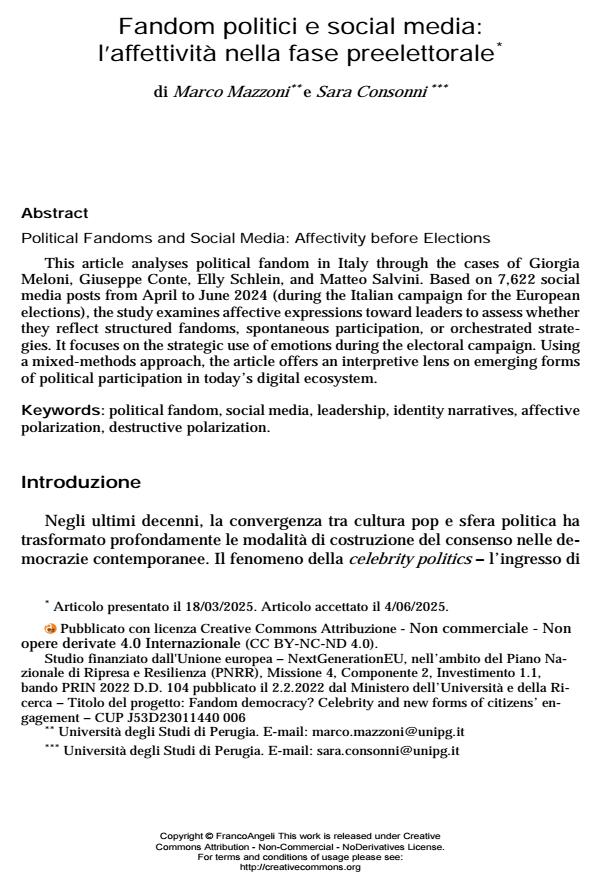Fandom politici e social media: l’affettività nella fase preelettorale
Titolo Rivista SOCIOLOGIA DELLA COMUNICAZIONE
Autori/Curatori Marco Mazzoni, Sara Consonni
Anno di pubblicazione 2025 Fascicolo 2025/69
Lingua Italiano Numero pagine 19 P. 30-48 Dimensione file 251 KB
DOI 10.3280/SC2025-069002
Il DOI è il codice a barre della proprietà intellettuale: per saperne di più
clicca qui

FrancoAngeli è membro della Publishers International Linking Association, Inc (PILA), associazione indipendente e non profit per facilitare (attraverso i servizi tecnologici implementati da CrossRef.org) l’accesso degli studiosi ai contenuti digitali nelle pubblicazioni professionali e scientifiche.
This article analyses political fandom in Italy through the cases of Giorgia Meloni, Giuseppe Conte, Elly Schlein, and Matteo Salvini. Based on 7,622 social media posts from April to June 2024 (during the Italian campaign for the European elections), the study examines affective expressions toward leaders to assess whether they reflect structured fandoms, spontaneous participation, or orchestrated strategies. It focuses on the strategic use of emotions during the electoral campaign. Using a mixed-methods approach, the article offers an interpretive lens on emerging forms of political participation in today’s digital ecosystem.
Parole chiave:political fandom, social media, leadership, identity narratives, affective polarization, destructive polarization.
Marco Mazzoni, Sara Consonni, Fandom politici e social media: l’affettività nella fase preelettorale in "SOCIOLOGIA DELLA COMUNICAZIONE " 69/2025, pp 30-48, DOI: 10.3280/SC2025-069002